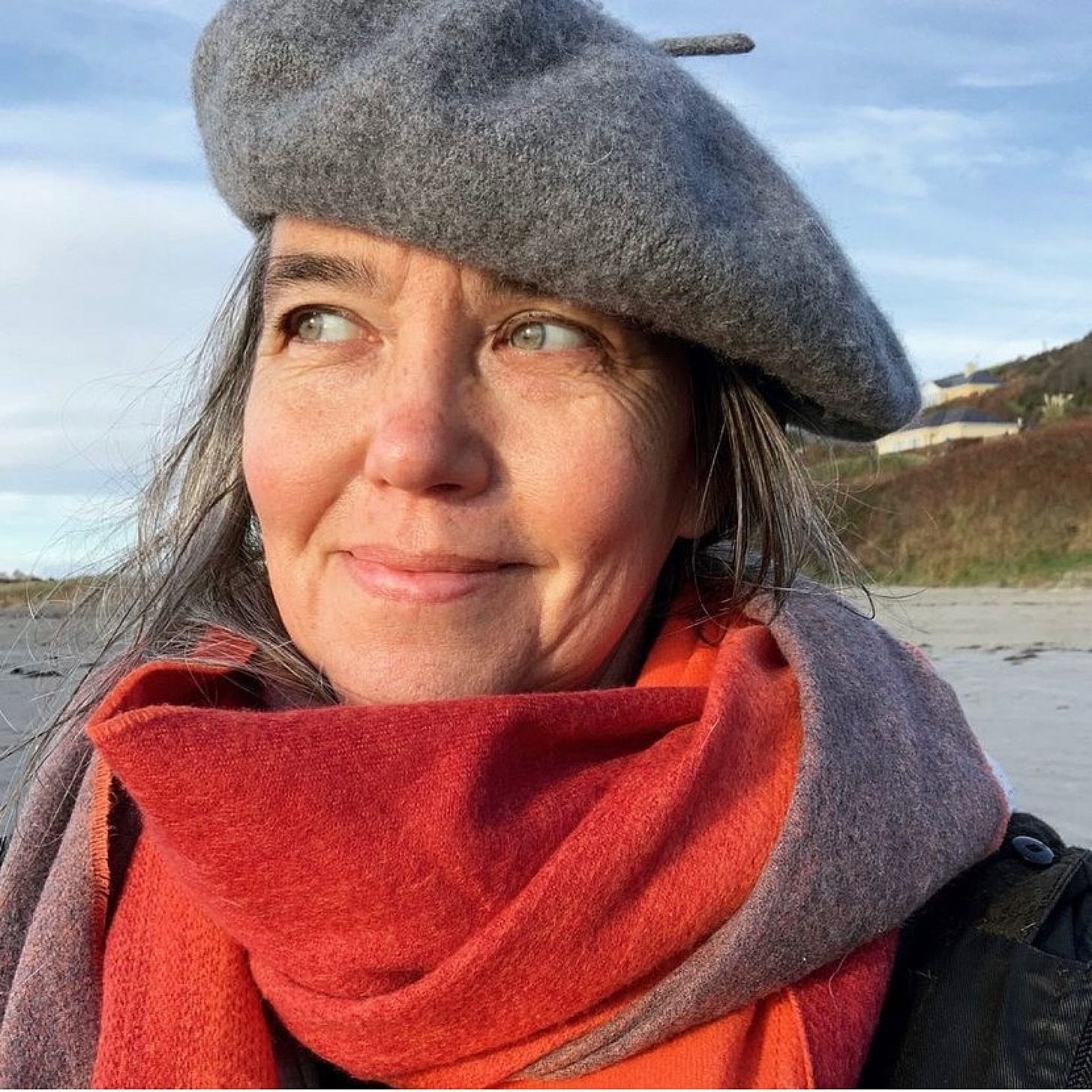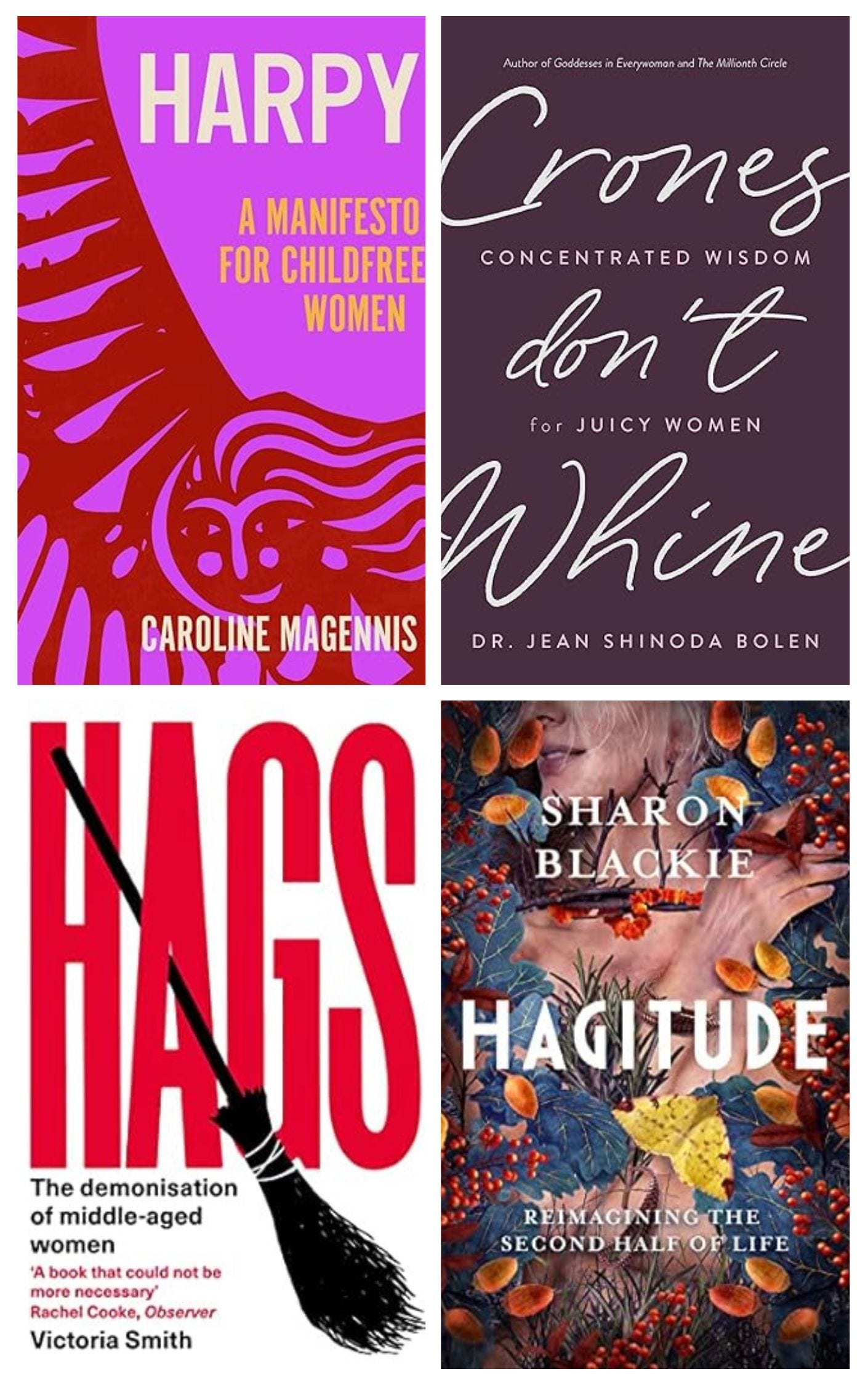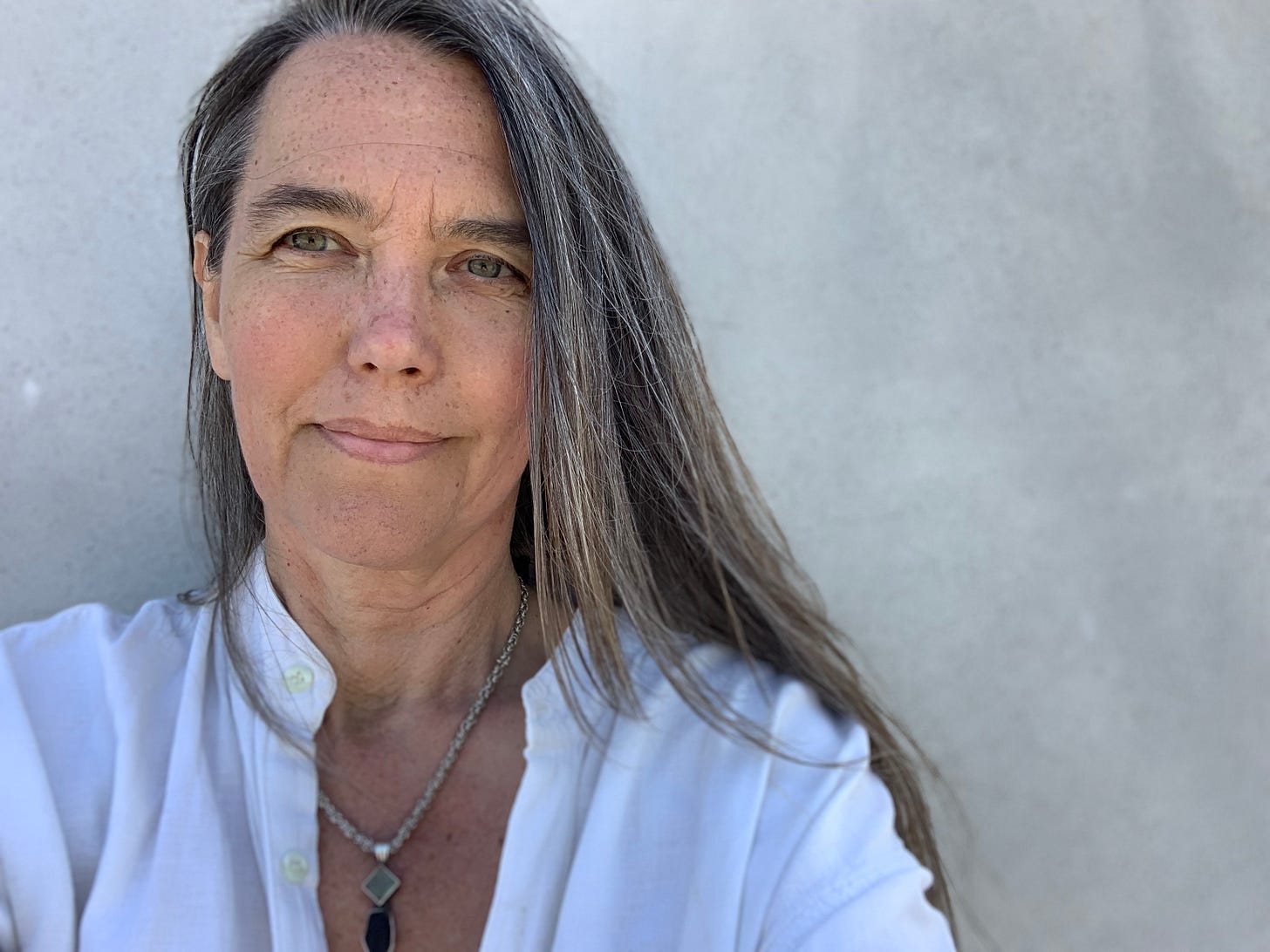The Joys of Opinionated Older Women
Best Re-Posts for January
Did you have a double-take then, seeing the words ‘joy’ and ‘opinionated older women’ in one sentence? Surely a typo... Because from the ‘scold's bridle’ torture device used to silence ‘nagging’ wives and condemned witches onwards (and probably long before too), the voices of post-reproductive women have not been welcomed, let alone celebrated by patriarchal society.
Advantages of Age is a reader-supported publication. To receive new posts and support my work, consider becoming a free or paid subscriber.
Subscribed
But something is changing. Perhaps as the long tail of the Baby Boomers enters old age, they’re not doing so quietly; after all, they’ve made a big noise about everything else, radically changing the world as they’ve passed through it, maybe they’ll overturn much that we believe about old age too?
From Gloria Steinem’s 1994 essay Doing Sixty through Jean Shinoda Bolen’s 2003 Crones Don’t Whine, there’s a red thread of anger that runs through a lot of Second Wave feminist writers that echoes Steinem’s statement that ‘the truth will set you free: but first it will piss you off.’ And the rising generation of feminist women writers currently in middle-age and older are getting more explicit still, hence Soraya Chemaly’s 2018 Rage Becomes Her: The Power of Women’s Anger; Sharon Blackie’s Hagitude: Reimagining the Second Half of Life (2022); Victoria Smith’s 2023 Hags: The demonisation of middle-aged women; Elise Loehen’s On Our Best Behaviour: The Price Women Pay to be Good (2023) and Caroline Magennis’ Harpy: A Manifesto for Childfree Women in 2024.
Although these are all very different books, they each speak to the idea that women are fed up with being silenced; and they say so loudly. It’s worth noting that several of them centre the unflattering stereotypes of older women in their titles, including crone, hag and harpy (interestingly, I’m interviewed or referenced in all three of them!) Shame is the most potent tool of social control, and in this tiny handful of books, it seems we’re seeing a movement towards wresting back ownership of the words used to shame menopausal women back into submission, much as the LGBTQIA+ movement has done, for example, with ‘queer’, although such reclamations are never wholly straightforward.
These words - crone, hag and harpy have a long history, much of which predates the dominance of patriarchy - thus it’s rare that you’ll find these strands within the current dictionary definitions, those iconic projects of the rationalist enlightenment to name and own the world.
Crone, for example, hasn’t always been an insult; its deep origin is thought to come from ‘Rhea Kronia’, (Mother of Time) and is connected to black creatures, such as the crow, which is sacred and related to death. But then when we consider how grief and death-phobic our culture is, with more than 50% of us not even having written a will, perhaps our aversion to the Crone’s implacable nature is not surprising. As someone who feels she survived a shocking identity death at midlife, and who is often known through my work as ‘that grief woman’, I feel steadied by the backbone of her presence in my life, so much so that my Instagram profile is @ApprenticeCrone.
Hag has perhaps even more surprising roots, and although online etymological dictionaries don’t appear to be able to trace it back much further than the early 13th century (although modern usage is rare before the 16th century) it seems to be a conflation of a healer or hedgewitch, and an ugly, post-menopausal woman. Yet there is a more ancient meaning too, hidden in the depths of the Greek language, that of ‘holiness’; the lives of the saints were known as ‘hagiographies’ after all. There are also links to the ancient Greek Furies. So, an angry, skilled, wise older women filled with holy rage? Sounds about right; frankly, she sounds like someone it wouldn’t be wise to ignore, so I disagree with Jean Shinoda Bolen that it’s a word ‘beyond redemption’ - I think the very harshness of the way it denigrates women the patriarchy deems unfuckable is precisely what makes it worth reclaiming, but this time by women who refuse to be fucked-over any more.
Harpies were originally mythological beings from ancient Greece - creatures with the head of a woman and the body of a bird; they were the personification of storm winds and guardians of the underworld. As Caroline Magennis writes in the introduction to Harpy, ‘They are usually in packs, scaring someone or driving them to a nasty end.’ In modern usage, along with ‘virago’, it is often used to describe a loudly opinionated older woman, an ancient version of the ‘Karen’ perhaps? A woman who won’t back down, and is considered unfeminine as a result. (See Shrill, Strident and Hilary Clinton...)
Writing down these demeaning and shaming definitions is hard; it takes the wind out of my feminist sails - as they are designed to, of course. Yet, as someone who stands on the cusp of sixty, I remain deeply grateful that I live at a moment and in a culture when I have the not-small privilege of the emotional, intellectual and social freedom to speak my mind, and an outlet for it through my writing and speaking, very little of which has to get past a status-quo gatekeeper.
I’m childless (and these days at peace with it) and thus not tangled up in the delights and obligations of family life; it also afforded me the time for a great deal of post-graduate education. And once the midlife storm of grief from my infertility and divorce cleared, it left my bones picked clean and the woman that rose from the ashes is one more at ease with transitions and endings - like menopause, ageing and death.
In fact, this reflective, more philosophical version of me, so much more like the young girl I was before puberty, feels like a workable identity to enter my sixties with. And, as there has possibly never been a better cultural moment in Western history to be an older woman (if you have the privilege to take advantage of it), I’m living a life my working-class female ancestors could barely have dreamed of. So why does it still feel so difficult to speak my truth in relationships, whether they be familial, friendships, workplace or others?
I suspect that the shadow of the scold’s bridle and the witch hunts is a long one and, whilst I can be ‘shrill’ in my writing (another shaming word used only for opinionated women), and even pretty bold in my TEDx talk, I often still struggle to find my voice in situations of relational conflict. And I’m not alone in that. In June 2024 I brought together a panel of eight childless women aged between their mid-fifties and mid-seventies for a public webinar on ‘Courageous Conversations’; I worked out that we had more than 600 years of lived experience between us, yet none of us had been supported by our upbringing, education or the wider culture to significantly develop our skills in dealing with boundaries and conflicts. And despite the excitement of the clutch of smash-the-patriarchy book titles I mentioned above, the fact remains that it’s often dangerous, even fatal, for women to speak their minds.
To paraphrase Margaret Atwood, whilst men’s biggest fear is that women will laugh at them; women’s biggest fear is that men will kill them.
And although there’s little data on the former, femicide has been identified globally as a leading cause of premature death for women. Hence girls and young women are praised for ‘keeping the peace’ and encouraged to ‘not rock the boat’ because not only does it reinforce the status quo, it could save their lives. As the women shared on the webinar, speaking her mind can cost a woman a relationship that she might not want to lose - the stakes can be high.
But then again, if it’s a relationship where you can’t be true to yourself, is it one you want to keep? I made this mistake myself in my early twenties, making an unconscious contract with my inner patriarch to suppress my feminist beliefs in order to make a romance work; and it did ‘work’, until many years later the cognitive dissonance of living that false-self cracked me open into a nervous-breakdown-slash-spiritual awakening - I’ll always be grateful to Brene Brown for that phrase - one which brought that marriage to a close in my late thirties.
Because sometimes Sleeping Beauty smashes her own way out of the glass case.
So, the joy I take from being an opinionated older woman is not the ‘wearing purple’ kind of joy, to quote Jenny Joseph’s poem ‘Warning’, but rather the joy I take in being an heir to the intellectual, financial and social freedoms that older feminists fought for, and for being haggy enough to be off the fuckable list, and thus free to fly under patriarchy’s radar. Maybe that’s what the broomsticks were always for, after all?
JODY DAY is the English/Irish founder of Gateway Women, the global support & advocacy network for childless women she created in 2011, and for this, she’s often described as the founder of the ‘childless movement’. She’s also the author of the best-selling Living the Life Unexpected: How to Find Hope, Meaning and a Fulfilling Future Without Children (PanMac 2016/2020) and her popular Substack, Gateway Elderwomen. A World Childless Week Ambassador since its inception in 2017, chosen as one of the BBC’s 100 Women in 2013 & as a UK Digital Woman of the Year in 2021, she’s a global thought leader on female involuntary childlessness. She’s a psychotherapist, a 2017 and 2022 TEDx speaker, a founding and former board member at the UK Charity Ageing Without Children, and a former Fellow in Social Innovation at Cambridge Judge Business School. After a lifetime in London, she now lives by the sea in West Cork, rural Ireland, where she’s completing a novel (featuring a childless heroine of course!) and nurturing her emerging Gateway Elderwomen project. She is managed by a small white terrier called Parsnip.
Website: https://gateway-women.com/gateway-elderwomen/
substack:
Instagram: https://instagram.com/apprenticecrone
LinkedIn: https://www.linkedin.com/in/jodyday/








Looking forward to more Jody….I am reclaiming “spinster” as a wise and cool older gal.
Fantastic article, Jody!💕 I’m embracing my impending cronage and enjoying that free feeling again, as you say, that I remember as a girl. The fuckable brackets, perhaps?